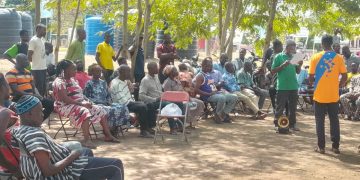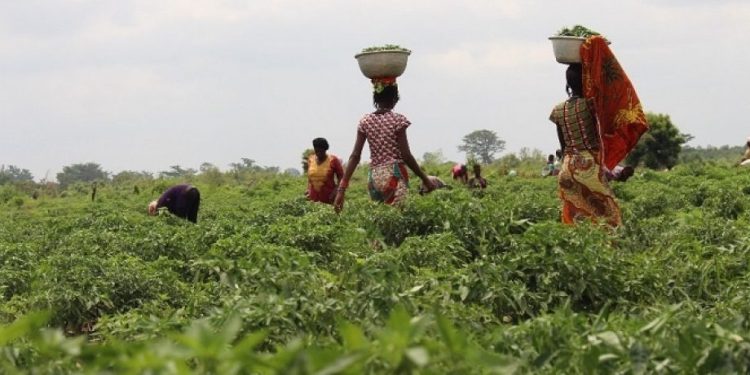The Peasant Farmers Association of Ghana (PFAG) has voiced deep disappointment over the recent arrest and detention of anti-galamsey campaigners, calling for their immediate release and stronger action against illegal mining activities. These campaigners, who have been advocating for the protection of forests, water bodies, and farmlands, have been unjustly detained while illegal miners continue to devastate rural livelihoods.
PFAG expressed concern that while the government’s “Greening Ghana” initiative aims to restore the environment, illegal mining—or “galamsey”—remains rampant, undermining these efforts. The association warned that galamsey poses an existential threat to Ghana’s agricultural sector, which is the backbone of the nation’s economy and the livelihood of millions.
Impact of Illegal Mining on Agriculture
The destructive effects of illegal mining are widespread, with galamsey activities causing massive damage to farmlands, polluting rivers, and contaminating soils. These issues have rendered large swathes of fertile land unsuitable for farming, leading to declining crop yields, reduced incomes for farmers, and the loss of agricultural land critical for national food security and exports.
In some cases, traditional authorities have pressured farmers to relocate if they cannot coexist with illegal mining operators. The situation is particularly dire for cocoa farmers, with a report from the Journal of Rural Studies revealing that over 19,000 hectares of cocoa farmland were lost to galamsey in 2023. Farmers in affected areas are forced to carry water from their homes to irrigate their crops, as water sources have been polluted by mining activities.
The Ghana Statistical Service recently reported a year-on-year decline of 26.2% in cocoa real GDP, largely attributed to the impact of illegal mining. Furthermore, the Forestry Commission has identified 34 forest reserves under immediate threat from galamsey operations.
PFAG’s Demands for Government Action
In light of these alarming developments, the PFAG has condemned the government’s failure to address these critical issues and its use of security forces to intimidate citizens advocating for environmental protection. The association issued a set of demands to the government:
- Immediate Release of Detained Campaigners: PFAG calls on the Attorney General to withdraw charges against the anti-galamsey protestors and file a “nolle prosequi” to discontinue their case. The association described the harsh detention and inhumane treatment of these individuals as unacceptable.
- Declaration of a State of Emergency: PFAG demands the immediate declaration of a state of emergency on all mining activities in river bodies, forest reserves, and farmlands. The association called for the deployment of security forces to protect these areas from further destruction.
- Ban on Mining in Protected Areas: PFAG is calling for a complete ban on all forms of mining in water bodies, forests, and farmlands to safeguard these crucial resources.
- Revocation of L.I. 2462: The association urged the government to revoke Legislative Instrument 2462, which permits mining in forest reserves, arguing that it contradicts environmental preservation efforts.
- Land Reclamation and Restoration: PFAG demands the immediate implementation of a comprehensive plan to reclaim and restore all farmlands destroyed by illegal mining.
- Support from Civil Society: PFAG called on its members and civil society groups across the country to stand firm and join in actions to protect water bodies and farmlands from further damage. The association expressed its full support for organized labor and other interest groups advocating for decisive government action on this issue.
PFAG emphasized that the government must act swiftly to halt all mining activities in rivers and forest reserves, warning that failure to do so would put the country’s food security at serious risk.
“A state of emergency must be declared now to protect our food security,” PFAG concluded, stressing the urgency of halting all forms of mining in Ghana’s vital ecological areas.


































































